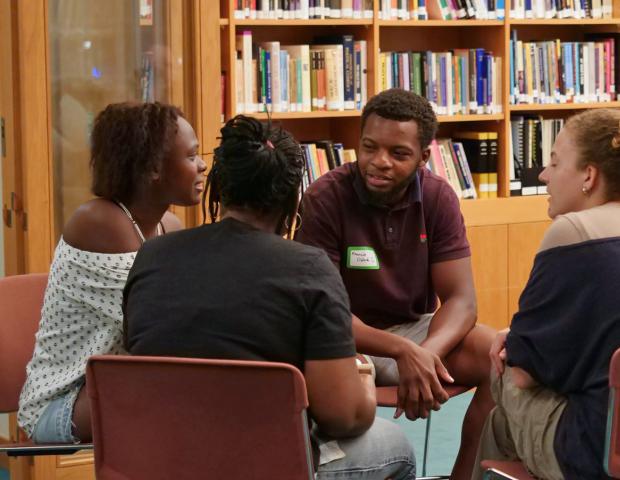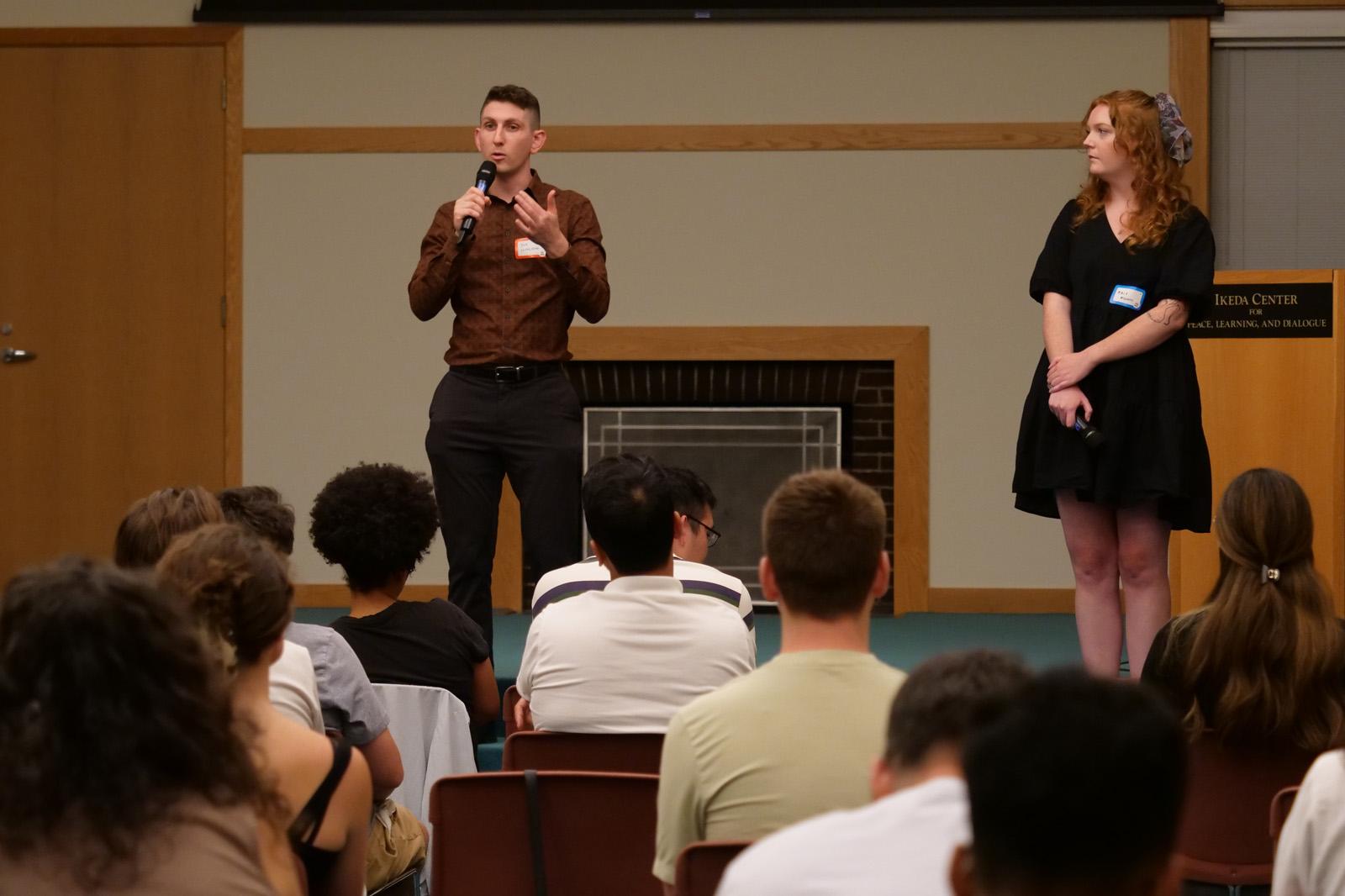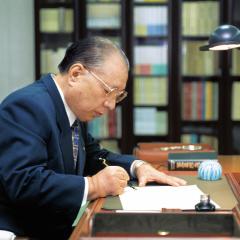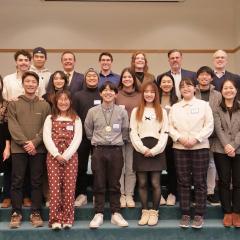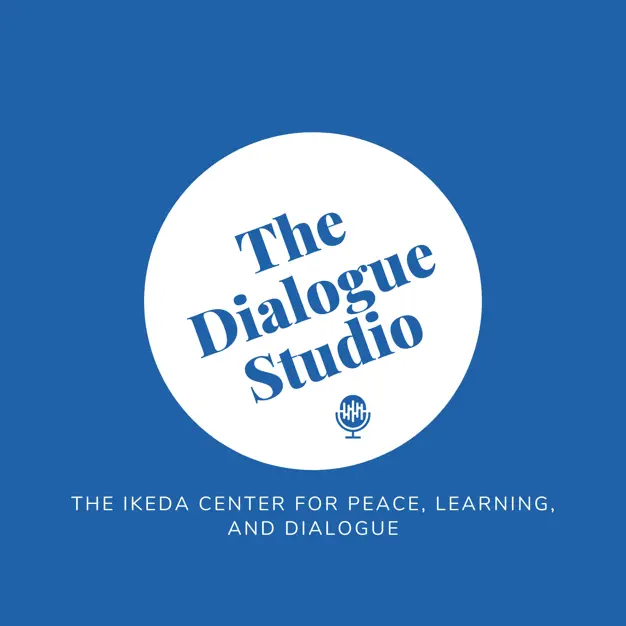Dialogue Nights, #35: Strength Through Peace
Participants engage in the topic, strength through peace
In commemoration of the 80th anniversary of the U.S. atomic bombings of Hiroshima and Nagasaki, the Ikeda Center held a special Dialogue Nights event to honor the hundreds of thousands of innocent people who died and the hibakusha (atomic bomb survivors) who continue to courageously share their testimonies. Inspired by Center founder Daisaku Ikeda’s hope filled philosophy, the focus of the evening’s discussion centered on the idea of “strength through peace,” challenging the common narrative of “peace through strength.”
The evening featured two guest speakers: Dr. Joe Hodgkin, Hospitalist Physician at Mass General Hospital and Greater Boston Physicians for Social Responsibility Co-Chair for Nuclear Disarmament, and Molly McGinty, Program Director at the International Physicians for the Prevention of Nuclear War.
In her welcoming remarks, Center staff Preandra Noel discussed President Ikeda’s experience during World War II and his lifelong commitment to nuclear weapons abolition. She also introduced Sensei’s conviction that peace is “not simply the absence of war; it is a state in which people come together in mutual trust and live with joy, energy and hope. This is the polar opposite of war―where people live plagued by hatred and the fear of death.”
The programming officially started with a video of hibakusha Setsuko Thurlow’s 2017 Nobel Prize lecture. Following the video, attendees were invited to reflect on the following questions: What came up for you after watching the video? How did hearing her testimony make you feel? The speakers then presented on the meaning of strength through peace, the historical legacy of nuclear weapons and the impacts they’ve had on humanity, and what we can do going forward.
During the Q&A portion, one attendee asked how people can get involved in this work when they already have commitments such as full-time jobs or school. Joe responded that there are “so many ways, big and small to get involved.” Even just to “have a conversation with somebody” is important, he said. Other ways could include “educating yourself, watching a documentary, [and] coming to an event like this.”
As a concluding activity, participants learned about Sadako Sasaki’s story and the significance of paper cranes. They then had an opportunity to make their own paper cranes, which the Center will mail to the Children’s Peace Monument in Peace Memorial Park in Hiroshima.
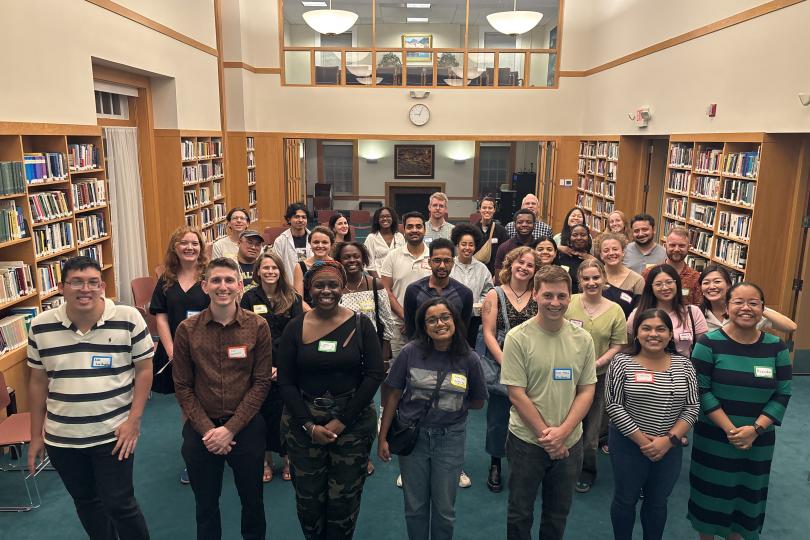
Group photo of participants at our August 2025 Dialogue Nights
